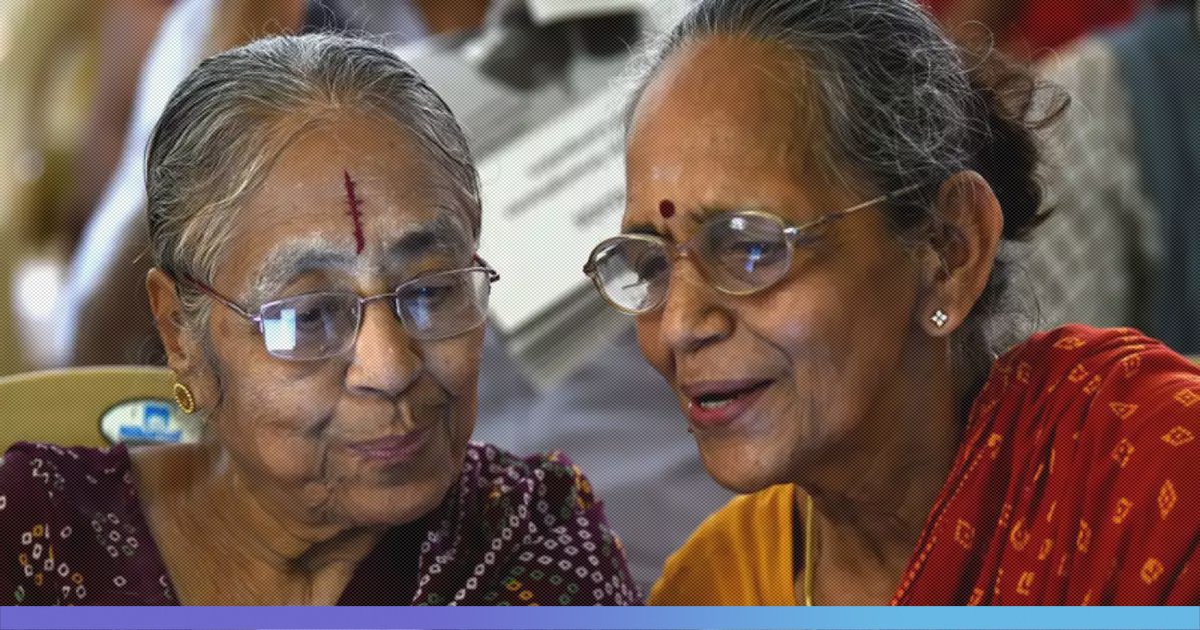Septuagenarian Mrs Patil is keeping extremely busy these days. Not a day passes without playing and talking to her 9-year-old grandson. They talk about everything under the sun, from how his day at school was to whether Mrs Patil took her daily medication on time. The only difference is that the grandmother-grandson duo is separated by a physical distance of 13,500 odd kilometres between India and the USA.
This was not always the case. Mrs Patil’s days were marred with loneliness, up until she discovered social media platforms like Facebook and WhatsApp. Keeping in touch with relatives, old friends and colleagues has now become much easier.
Mrs Patil is not alone, an increasingly large population of senior citizens has taken to social media and how! Right now, the number of senior citizens using social media stands at just 4%, however, the good news is that it is gradually increasing. A study showed that people over the age of 65 using social media has surged by 150% between 2009 and 2011.
Grandpa’s got the social media bug!
With families getting shorter, and joint families becoming something of a forgotten tale, the elderlies seem to be affected the most. The only companion for those living their post-retirement lives is loneliness. A study by Agewell Foundation in 2017 revealed that one in every two senior citizens felt lonely. In situations like these, social media very well plays the role of a comforting friend.
Facebook remains to be the platform mostly actively used by them. Over time a lot of exclusive senior citizen groups have emerged. These groups are mostly filled with, quite expectedly, devotional and religious posts, along with a barrage of ‘good morning’, ‘shubh ratris’ and ‘good night’ posts.
However, in some of the groups, what is observed is the formation of a rather endearing community of sorts. Among the more exclusive of these groups, many those who join the group introduce themselves with a selfie. Now the style of taking selfies is what generally in millennial lingo referred to as ‘dad selfie’ or ‘mom selfie’, which has its own charm and innocence associated with it. Members of such groups also routinely share personal achievements and happiness. Be it Mrs Saini sharing a picture of her grandson’s first day to school or My Gupta sharing picture of having a family dinner after a long time or Mr Sodhi posting a video of him singing.
Much more personalized and private are WhatsApp groups. Mr Kumar, a retired government employee, now settled in Bengaluru, has found a great way to reconnect with long lost friends, college mates and old colleagues through these WhatsApp groups.
These social media groups have, without any doubt helped senior citizens to combat melancholy which is painfully characteristic of post-retirement life. The increased visibility of elderlies on varied social media platform is an indicator of the fact that they are slowly warming up to technology.
How senior citizen friendly is social media?
While social media might have helped senior citizens, albeit a small population of them in eliminating loneliness and boredom, there are some, rather negative facets of it. One of the first things that come to fore is online safety. HelpAge India’s report revealed that a staggering 60% of the respondents feel that usage of social media has resulted in increased economic loss through blackmailing/ransom calls/ spam calls to the people in their age group and sharing pictures/ tagging geo locations, places check-in information on social media has increased security threats to them.

HelpAge India
India’s struggle with fake news has been no secret. And senior citizens too are not immune to what has now become an endemic of sorts. Even worse, senior citizens are more susceptible to believing and sharing fake news. A recent study said that those above the age of 65 were more likely to share fake news. This study considered a sample of American Facebook users over the age of 65. This was largely attributed to two reasons. One being the lower levels of ‘digital literacy’ among this group of people. The other being deterioration of memory which in turn results in ‘particularly undermined resistance to an illusion of truth’. While this considered just the sample of US citizens, it is likely to hold true anywhere else too, India included.
Despite all of this, it impossible to ignore the positives of social media. In fact, according to the Phoenix Center Study (2009), spending time online was found to reduce depression among older adults by at least 20%. So in this catch 22 situation, what is required is that brands introduce features which are more suited for this demography, thereby ensuring their safety and security in digital spaces. Younger relatives of these people must also invest time in familiarising them with social media, talking to them about its pros and cons.
Also Read: Healthcare Of Elderly Suffers With Youth Migration











